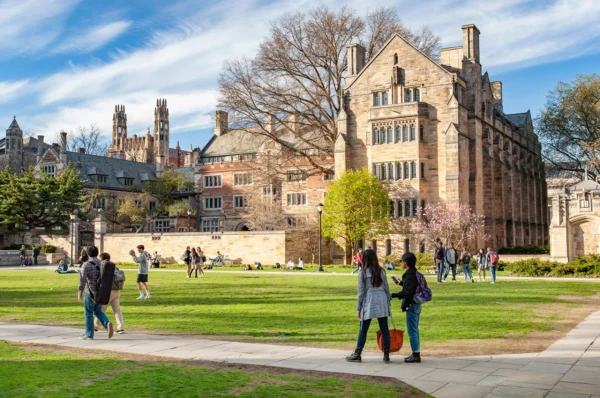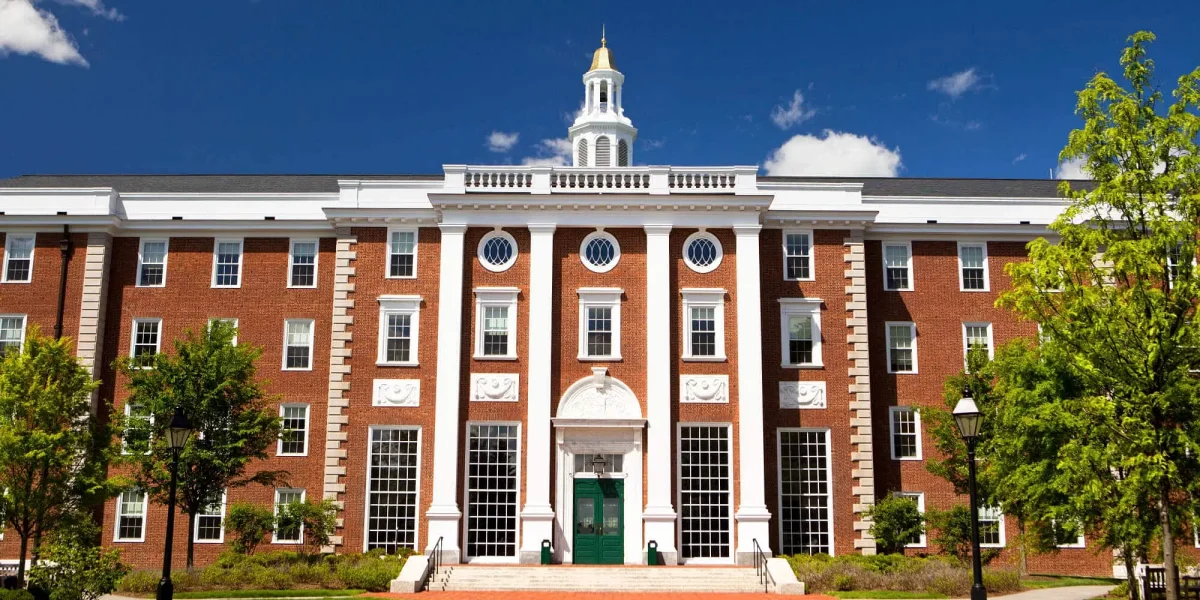Ivy League schools are supposed to be top-tier—the best of the best, the cream of the crop. They offer the best education to students and are extremely competitive, pushing students to put in maximum effort. Everyone dreams of going to an Ivy League.
But, in reality, are they actually worth all of the hype? I say no, they are not.
The colleges are not only heavily overpriced and unfair in their acceptance rates but are facing indoctrination accusations, and just overall, might not be the best choice for every student.
Money and Acceptance
For most students, it is already extremely difficult to pay the hefty tuition that all colleges charge, but what about when it comes to Ivy League tuition? Well, you might as well be digging yourself an early grave.
Ivy League schools, on average, have tuition that are six times higher than your regular public university, sentencing students into a lifetime of debt the moment they commit to the school. For example, in a recent study conducted by wordsrated.com, they concluded that the average cost of a public college in 2023 was $10,200, while the average tuition for Brown University was $65,146.
The fact that Ivy Leagues don’t give merit scholarships doesn’t help at all either. The only funding that these elite colleges offer is need-based financial aid, meaning that they give you money based on the income of your family. Naturally, only people with extremely unfortunate financial circumstances often receive this financial aid.
In short, the only way a person will be able to pay the tuition without going into debt is either by getting financial aid from the colleges or if your family is financially well-off and you are able to afford the tuition by itself.
When asked about her opinion on Ivy Leagues not having merit scholarships, Abigail Cruz, a current college student at UMass Amherst, responded, “I think that’s stupid.” She continued by saying, “The difference between financial aid and merit is that financial aid is necessary and merit is earned. So, what is the reason to work hard to get into an Ivy League if you can’t afford it anyways? It’s like, there’s no reward; people who have the money to pay will have the money, and those that don’t, don’t. There is no scholarship to help them. It’s a lose-lose situation. There is no incentive for those who try hard.”
On top of that, the acceptance rates of these highly acclaimed universities have been slowly getting smaller and smaller in recent years, with Harvard and Yale dropping down to less than 5%.
That’s insane!
During COVID, Ivy schools made the submission of SAT and ACT test scores optional, and in order to kind of balance that out, they lowered their acceptance rates, so as to still isolate the people who weren’t supposed to be there.
Recently, however, these colleges have brought back the requirement of submitting standardized test scores but haven’t raised their acceptance rates back up to counteract this decision. Because of this, it is now the hardest it’s ever been for average kids to secure a spot within the top ranks of these noble schools.
It is also difficult to compete with the legacy status that some students might have—reputable schools, like Ivy’s, prioritize students whose family members are alumni, taking the spotlight off of other students that might potentially be a better fit and have more to offer.
Altogether, the high costs, dwindling acceptance rates, scarceness of scholarships, and legacy admissions practices make Ivy League schools a challenging and often impractical choice for many students.

Not Always The Best Choice For Everyone
There is no doubt that our Ivy universities have amazing educational systems; if they didn’t, they would not be held in such high regard in the first place. Harvard itself is ranked the number one college in the U.S. for biology, math, chemistry, and economics alone.
With that being said, there are still some other colleges with comparable academics.
Northeastern University, for one, is an excellent school and is considered a “reach school” for many. According to Niche.com, it is the second best school for nursing in America. Northeastern has more than 35 specialized research and education centers as well as being a worldwide leader in experimental learning. On top of that, this amazing school also awards merit scholarships to hardworking students.
The esteemed Massachusetts Institute of Technology, or better known as MIT, is also an excellent competing college. This school is known for being the best choice for subjects like computer science, physics, and engineering. If you are interested in being a STEM major of any sorts, MIT is the school you should look at.
Caitlyn Day, a junior at LHS who is currently looking at colleges and is 5th overall in her class, says that her top school at the moment is John Hopkins University.
When I asked her why she said, “…it has a beautiful campus, is one of the top research institutes in the nation, and they have a program where they pair with a close university so students can get a minor in music. Overall, it just has more of what I’m looking for for my future.”
Even though John Hopkins is not an ivy league school, it still offers top quality education and excellent programs and resources that attract outstanding and committed students like Day.
As you can see, there are many other schools that are just as good as Ivy Leagues and are better fits for some students. Maybe, they just might be a better fit for you too.
Indoctrination Claims
With their name, reputation, and ever-growing funds, Ivy Leagues are incredibly influential to the public and their student body. For example, if Brown University were to issue a statement, it would automatically be taken as a fact by everyone who hears it.
Recently, however, Ivy Leagues have faced claims of indoctrinating their students and force-feeding them certain political viewpoints, essentially telling students what they should think.
The authors of Coming Home: Reclaiming America’s Conservative Soul, Ted McAllister and Bruce Frohnen, wrote, “Higher education now aims to produce highly trained idiots…who function in an economic system they cannot comprehend.”
Because teaching tends to be more of a liberal occupation, some affirm that the professors at prestigious schools, like the Ivy Leagues, are teaching left-leaning ideals to the students and shutting down any conservative notions students might have or believe.
This past week, I interviewed university professor Heather Cruz, PhD, about what should and shouldn’t be encouraged in a college classroom. Her response to this question was, “Thinking should be encouraged. Our job as college professors is to present the information—whatever discipline it is you’re teaching—present the information and guide students through a thinking process, but we should never tell students what they should think or what they’re opinion should be…We should not encourage them to be recycle bins for whatever our opinion is. We need to encourage them to hear all of the information that we can possibly present, think through it, and understand it in a way that makes sense to them and their background.”
If these indoctrination rumors do, in fact, have some truth behind them, would you still want to attend an Ivy League college, risking your freedom of cultivating independent and original thoughts?
I know I wouldn’t.
For as alluded to by Dr. Cruz above, it is not anyone’s business to tell us what to think.
Final Thoughts
At the end of the day, I have no doubt that Ivy League universities are indeed some of the best we have in our country—any statistic online could prove that.
I just believe that realistically, they are not as much of “the best option” as one might think.
Through overwhelmingly high tuition and extremely low acceptance rates, it feels almost impossible to get into such notable schools. Luckily, there are other schools that not only do not have the high prices, but are just as prestigious and rigorous as the Ivy Leagues and don’t have rumors of indoctrination floating next to their names.
Next time you sit down to browse college options, just remember that the “best” isn’t always what’s best for you.
So, ask yourself: are they really worth it?



ashlyn • Jun 4, 2024 at 12:38 pm
This is so well written!! Great job Izzy!
Kasia Lipior • Jun 4, 2024 at 12:26 pm
This is a really informative article on whether Ivy Leagues are worth it. I really enjoyed reading it.